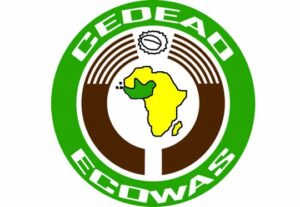Burkina Faso, Mali, and Niger have officially announced their withdrawal from the Economic Community of West African States (ECOWAS), a move set to take effect on January 29, 2025.
The decision was confirmed in a communiqué issued at the conclusion of the 66th ECOWAS Summit, held at the Old Banquet Hall of the Presidential Villa in Abuja.
The communiqué stated, “The authority takes note of the notification by Burkina Faso, the Republic of Mali, and the Republic of Niger of their decision to withdraw from ECOWAS.” It also highlighted that the withdrawal follows Article 91 of the revised ECOWAS Treaty, which allows member states to exit the bloc upon proper notification and adherence to required procedures.
While the reasons for their departure were not explicitly detailed in the communiqué, the move underscores the escalating tensions between the bloc and the three nations, all of which are currently under military rule following recent coups.
The relationship between ECOWAS and the three Sahelian countries has been strained over the bloc’s pro-democracy stance and its imposition of sanctions against unconstitutional changes in government. The military juntas in Burkina Faso, Mali, and Niger have accused ECOWAS of bias, claiming it favors certain member states while neglecting the security and economic struggles faced by others.
Moreover, these nations have expressed dissatisfaction with ECOWAS’s approach to addressing the growing threat of terrorism in the Sahel region, a critical area plagued by extremist activities. Their decision to withdraw marks a significant realignment within West Africa, with implications for trade, security cooperation, and collective efforts to combat terrorism.
The exit of Burkina Faso, Mali, and Niger represents a significant shift in ECOWAS’s composition and influence. Together, these nations form a contiguous geographical zone in the Sahel, covering a substantial portion of West Africa’s landmass. Their withdrawal is expected to affect regional integration, with concerns over trade, economic policies, and coordinated security measures against extremist groups operating across their borders.
Additionally, the three countries have increasingly aligned themselves with alternative international partners, including Russia, signaling a potential shift in regional alliances.
ECOWAS leaders expressed regret over the decision but reaffirmed their commitment to democratic principles and regional stability. During the summit, ECOWAS Chairperson and Nigerian President Bola Ahmed Tinubu emphasized the importance of dialogue and unity in addressing disputes. However, there were no indications of efforts to reverse the decisions of the departing nations.
Tinubu urged member states to prioritize stability and cooperation, stressing that regional unity is crucial in addressing the challenges facing West Africa. Despite these calls, the departure signals a deepening divide within the bloc.






